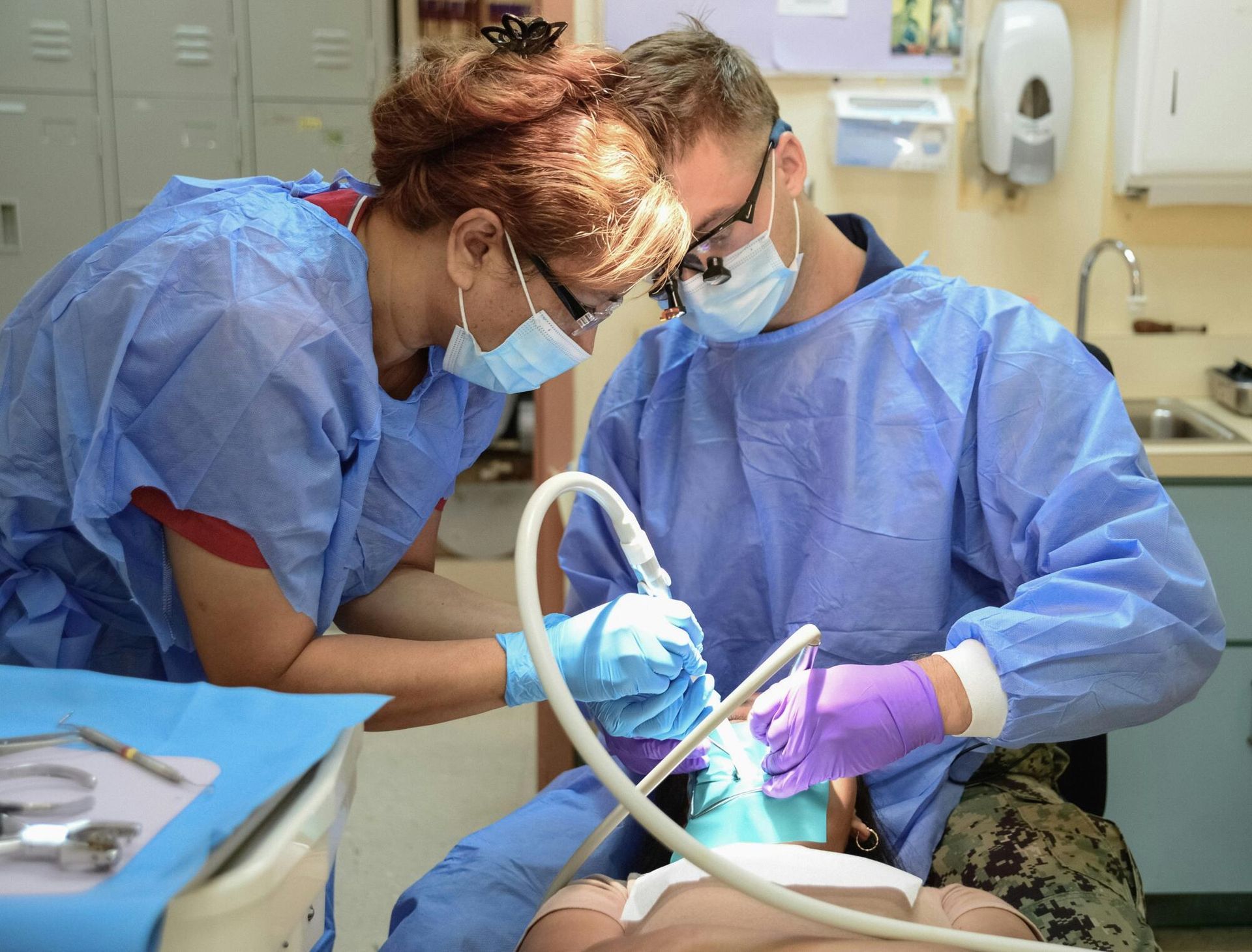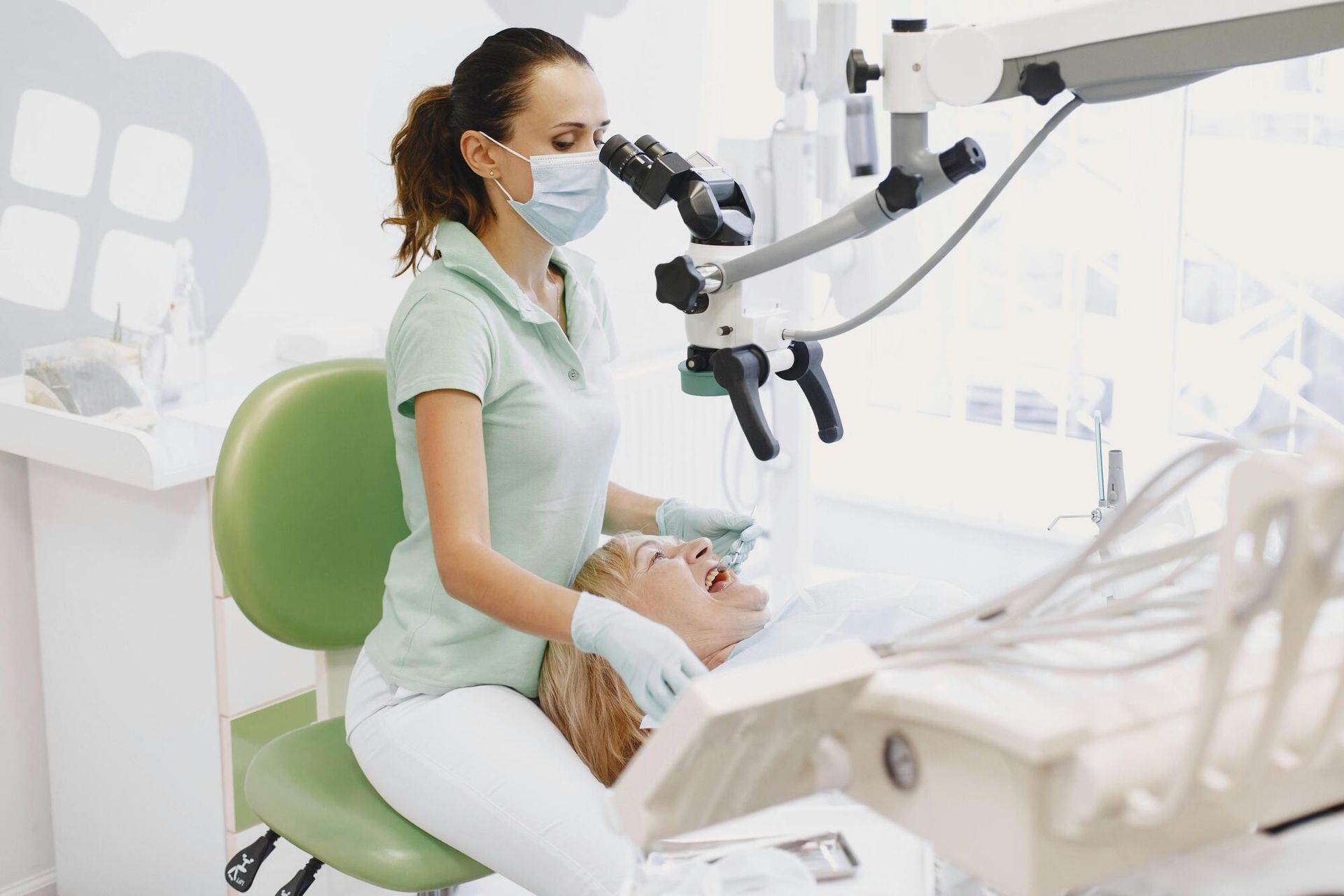What Causes Pain Under the Ear Behind the Jaw Bone on the Left Side?
Pain under the ear and behind the jawbone, especially on one side, can be troubling and uncomfortable. While this discomfort is often mild and temporary, it may indicate an underlying condition that requires attention.
Understanding what might be causing this localized pain is the first step toward relief and proper treatment. It could, for example, be related to TMJ (Temporomandibular Joint disorders), which, according to the National Institute of Health (NIH), affects about 5 to 12% of the American population.
In this article, we'll explore the common causes of pain under the ear and behind the jaw, when to seek medical attention, and treatment options based on different diagnoses of TMJ and ear pain.
Common Causes of Pain Behind the Jaw and Under the Ear
Several structures lie in this region of the head and neck, including muscles, nerves, lymph nodes, the temporomandibular joint (TMJ), salivary glands, and parts of the ear. Any of these components can become inflamed or affected by conditions, leading to pain. Possible causes for ear pain and jaw issues include the following:
1. Temporomandibular Joint (TMJ) Disorder
The temporomandibular joint (TMJ) connects your jawbone to your skull and allows you to open and close your mouth. TMJ disorders can cause:
- Jaw pain
- Clicking or popping sounds
- Difficulty chewing
- Pain radiating under the ear and behind the jaw
Pain is often more noticeable on one side and may worsen with jaw movement. TMJ disorder (TMD) can be triggered by stress, teeth grinding (bruxism), arthritis, or trauma. The causes of TMJ pain are varied, and consultation with a TMD dentist is necessary.
2. Ear Infection (Otitis Media or Otitis Externa)
An ear infection in the middle ear (otitis media) or outer ear canal (otitis externa) can cause pain in the jaw and neck.
Symptoms may include:
- Earache
- Fullness in the ear
- Fever
- Fluid drainage
- Pain when touching or pulling the ear
Middle ear infections are common in children but can also affect adults, especially those with upper respiratory infections.
3. Swollen or Infected Lymph Nodes
There are several lymph nodes under the ear and along the jawline. When your body is fighting an infection, such as a cold, flu, or even a dental infection, these nodes can become tender and swollen.
Signs may include:
- A lump under the skin
- Soreness or aching
- Fever or other infection symptoms
Swollen lymph nodes usually resolve as the underlying illness improves, but persistent or painful swelling may need evaluation.
4. Dental Problems
Tooth or gum issues can also cause pain in the area behind the jaw and under the ear. Some of the most common dental-related causes include:
- Impacted wisdom teeth
- Dental abscess or infection
- Gum disease (gingivitis or periodontitis)
- Cracked or decayed molars
Pain may radiate from the back teeth to the ear and jaw. You might also notice tooth sensitivity, swelling, or foul breath.
5. Salivary Gland Infection or Stone (Sialadenitis)
Your parotid gland, the largest salivary gland, is located near the ear and jaw. If this gland becomes infected or blocked by a salivary stone, you may experience:
- Swelling and pain under the ear
- Difficulty chewing
- Dry mouth or bad taste
- Fever
These infections are more common in older adults and those who are dehydrated or have poor oral hygiene.
6. Muscle Strain or Tension
The sternocleidomastoid and other neck muscles connect near the jaw and ear. Poor posture, sleeping in an awkward position, or overuse (like prolonged phone use or turning the head repeatedly) can cause muscle tension or spasms, leading to localized pain.
The pain is typically dull, aching, and worsens with movement or touch.
7. Trigeminal Neuralgia or Facial Nerve Issues
Trigeminal neuralgia is a chronic pain condition affecting the trigeminal nerve, which supplies sensation to the face and jaw. Though rare, it can cause:
- Sudden, sharp facial pain
- Episodes triggered by touch, chewing, or talking
- Pain radiating near the ear or jaw
Other nerve-related conditions, like Bell's palsy, may also cause discomfort along the side of the face and ear.
8. Mastoiditis
This is a serious infection of the mastoid bone, located just behind the ear. Mastoiditis typically develops as a complication of an untreated ear infection.
Symptoms include:
- Swelling behind the ear
- Redness and tenderness
- Fever
- Hearing loss
This condition requires prompt medical attention and possibly antibiotics or surgery.
Less Common but Serious Causes
While most causes of pain behind the jaw and under the ear are benign, there are more serious (though less common) conditions to consider. Here are some of them:
- Tumors of the salivary glands or lymphatic system
- Jawbone (mandibular) fractures
- Arthritis affecting the jaw joint
- Heart-related pain, such as angina, which can occasionally present as pain in the jaw (though usually on the left side of the chest or arm)
Diagnosis and Evaluation
A healthcare provider, such as a primary care doctor, TMD dentist, or ENT specialist, will likely start with a physical exam and medical history. They may check:
- Jaw movement and alignment
- Tenderness in the ear or lymph nodes
- Signs of dental decay or infection
- Range of motion in the neck
Diagnostic tests and TMJ treatment options may include:
- Dental X-rays or panoramic images
- Dental Tensing treatment for TMD
- CT scan or MRI of the jaw or head
- Ultrasound of the salivary glands
- Stress management techniques
- Blood tests to rule out infection or inflammation
You might also be told to reduce your screen time, as too much of it can negatively affect your jaw. There are many little changes in your daily routine that can minimize jaw pain caused by TMD. One of them could be as simple as improving your posture.
If you visit a TMD dentist, they can provide more help with this. Daily routine changes can minimize jaw pain quite a bit.
TMJ and Ear Pain - Learn More About Your Treatment Options
While most issues are easily treatable, persistent or severe TMJ and ear pain should be assessed by a healthcare provider to rule out more serious concerns.
At
Dental Care Burke, we will do everything we can to keep your oral health in the best shape possible. If you are suffering from TMJ or TMD and looking for relief, then visit our office today. We specialize in comprehensive individual treatment.












